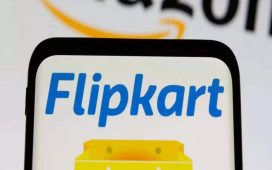New product launches and supermarket listings are putting a spring in the step of green UK manufacturer Homethings as it pursues its mission to change the way the world cleans by making tap water refills mainstream. “We are tackling both waste and emissions – you won’t find any greenwashing here,” declare entrepreneur duo Tim Keaveney and Matt Aubrey about their waterless, no single-use-plastic business that they started from scratch almost three years ago.
Their ground-breaking aim, to reverse the vast amounts of water used and carbon emitted in the production of everyday items, has led to revolutionary options for shoppers.
With Homethings it’s customers who activate the plant-based solutions with lighter, tap water refillable cleaning sprays, pods and tablets – price-competitive innovations the majority produced with partners in the UK – that cut water and energy usage by 94 per cent.
With £1.5 million of crowdfunding investment the business, which employs eight and is recruiting, doubled growth in 2022.
This year it is forecasting a £3million plus turnover and is considering a further scale-up investment raise of up to £5 million in 2024.
Its portfolio includes a market first, Washupthings, a powder-to-gel washing up liquid developed in partnership with government-backed agency Innovate UK.
Another breakthrough has been its effervescent tablets, a highly complex production operation. “You need a climate-controlled facility so the products don’t absorb moisture and disintegrate which is perhaps why major home care producers using plastic have had no appetite to go there,” explains Keaveney.
“We approached hundreds of makers until eventually we found one willing to take a punt on us with small runs and that got us into the market.
“With our stand on plastic we also needed alternative packaging and have worked with the University of Bradford developing sustainable cardboard sachets that are damp resistant. We see further applications for this in the food and vitamins markets.”
The company secured its first national retail listings last year with Waitrose and is now rolling out a more affordable one-tab dispenser with the retailer as well as a non-bio option for its laundry pods.
“Our communications with customers are extremely important and influence our product development, for example we found non-bio matters more to them than non-fragranced items,” adds Keaveney.
“We are just about to launch a new iteration of Washupthings with more suds and tons of grease-busting plant-based enzymes, just like people asked for. Brands have to be where the shopper is and that means also having an omni channel approach.”
Homethings, which is now social purpose B Corps accredited, will also feature in Whole Foods Market stores from this spring. The company is also teaming up with other sustainable businesses that are part of the refillable future such as The Modern Milkman.
Eco-active customers come from across the age range and the company also has small cleaning trader clients too, says Keaveney.
He comes from a family of entrepreneurs and covers the sales and strategy sides, with Edinburgh University friend Aubrey, who has an investment background, handling operations and finances.
As well as protecting their innovations, their biggest challenge remains convincing retailers that the consumer understands their offering and how to use it.
But with analysts predicting sustainability-conscious customers are a group set to grow to 60 per cent of the home care market by 2030, “awareness has been transformed over the past couple of years,” say the pair who are now seeing trade pick up again with Germany.
“We see our products as no-brainers for shoppers,” they declare. “One day all items under sinks and basins will be clean and greener.”











